 W
WSir Thomas Barrington, 2nd Baronet, 1585 to 18 September 1644, was an English politician and Puritan activist who sat in the House of Commons at various times between 1621 and 1644. In the early stages of the First English Civil War, he helped establish the Eastern Association, one of the most effective elements of the Parliamentarian army.
 W
WOliver St John, 1st Earl of Bolingbroke, known from 1618 until 1624 as 4th Baron St John of Bletso, was an English nobleman and politician.
 W
WThe Rt Hon. Edward Conway, 2nd Viscount Conway, PC, was an English politician, military commander, bibliophile and peer.
 W
WJohn Cook was the first Solicitor General of the English Commonwealth and led the prosecution of Charles I. Following The Restoration, Cook was convicted of regicide and hanged, drawn and quartered on 16 October 1660. He is considered an international legal icon and progenitor of international criminal law for being the first lawyer to prosecute a head of state for crimes against his people.
 W
WBasil Fielding, 2nd Earl of Denbigh was a diplomat, politician and parliamentarian army officer during the English Civil War. He was the eldest son of William Feilding, 1st Earl of Denbigh and Susan Feilding, Countess of Denbigh.
 W
WRobert Devereux, 3rd Earl of Essex, KB, PC was an English Parliamentarian and soldier during the first half of the 17th century. With the start of the English Civil War in 1642 he became the first Captain-General and Chief Commander of the Parliamentarian army, also known as the Roundheads. However, he was unable and unwilling to score a decisive blow against the Royalist army of King Charles I. He was eventually overshadowed by the ascendancy of Oliver Cromwell and Thomas Fairfax and resigned his commission in 1646.
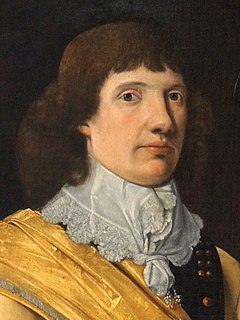 W
WNathaniel Fiennes was an English politician who sat in the House of Commons at various times between 1640 and 1659. He was an officer in the Parliamentary army during the English Civil War and an active supporter of the republican cause during the Interregnum.
 W
WSir John Glynne KS was a Welsh lawyer of the Commonwealth and Restoration periods, who rose to become Lord Chief Justice of the Upper Bench, under Oliver Cromwell. He sat in the House of Commons at various times between 1640 and 1660.
 W
WSir Matthew Hale was an influential English barrister, judge and jurist most noted for his treatise Historia Placitorum Coronæ, or The History of the Pleas of the Crown. Born to a barrister and his wife, who had both died by the time he was 5, Hale was raised by his father's relative, a strict Puritan, and inherited his faith. In 1626 he matriculated at Magdalen Hall, Oxford, intending to become a priest, but after a series of distractions was persuaded to become a barrister like his father thanks to an encounter with a Serjeant-at-Law in a dispute over his estate. On 8 November 1628 he joined Lincoln's Inn, where he was called to the Bar on 17 May 1636. As a barrister, Hale represented a variety of Royalist figures during the prelude and duration of the English Civil War, including Thomas Wentworth and William Laud; it has been hypothesised that Hale was to represent Charles I at his state trial, and conceived the defence Charles used. Despite the Royalist loss, Hale's reputation for integrity and his political neutrality saved him from any repercussions, and under the Commonwealth of England he was made Chairman of the Hale Commission, which investigated law reform. Following the Commission's dissolution, Oliver Cromwell made him a Justice of the Common Pleas.
 W
WSir Robert Harley was an English statesman who served as Master of the Mint for Charles I and later supported the parliamentarians during the English Civil War.
 W
WSir Arthur Haselrig, 2nd Baronet was a leader of the Parliamentary opposition to Charles I and one of the Five Members whose attempted arrest sparked the 1642–1646 First English Civil War. He held various military and political posts during the 1639–1651 Wars of the Three Kingdoms but became an opponent of Oliver Cromwell during the Protectorate. In 1660, his actions inadvertently helped restore Charles II to the throne; unlike many senior Parliamentary leaders, his life was spared but he was confined to the Tower of London, where he died on 7 January 1661.
 W
WHenry Rich, 1st Earl of Holland, August 1590 to 9 March 1649, was an English courtier and politician. He was executed by Parliament after being captured fighting for the Royalists during the Second English Civil War.
 W
WEdward Montagu, 2nd Earl of Manchester, KG, KB, FRS was an important commander of Parliamentary forces in the First English Civil War, and for a time Oliver Cromwell's superior.
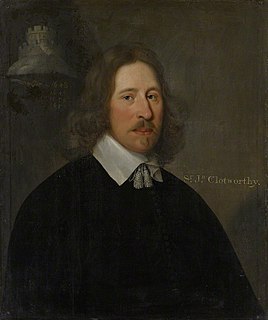 W
WJohn Clotworthy, 1st Viscount Massereene was a prominent Anglo-Irish politician.
 W
WSir John Maynard KS was an English lawyer and politician, prominent under the reigns of Charles I, the Commonwealth, Charles II, James II and William III.
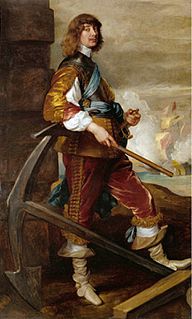 W
WAlgernon Percy, 10th Earl of Northumberland, 4th Baron Percy, KG was an English aristocrat, and supporter of the Parliamentary cause in the First English Civil War.
 W
WPhilip Herbert, 4th Earl of Pembroke and 1st Earl of Montgomery, KG KB PC was an English courtier, nobleman, and politician active during the reigns of James I and Charles I. Philip and his older brother William were the 'incomparable pair of brethren' to whom the First Folio of Shakespeare's collected works was dedicated in 1623.
 W
WWilliam Pierrepont was an English politician who sat in the House of Commons at various times between 1640 and 1660. He supported the Parliamentary cause in the English Civil War.
 W
WJohn Pym was an English politician, who helped establish the foundations of Parliamentary democracy. One of the Five Members whose attempted arrest in January 1642 sparked the First English Civil War, his use of procedure to outmanoeuvre opponents was unusual for the period and he was respected by contemporaries rather than admired. In 1895, the political historian Goldwin Smith described him as "the greatest member of Parliament that ever lived".
 W
WFrancis Rous or Rouse, was an English politician and Puritan religious author, who was Provost of Eton from 1644 to 1659, and briefly Speaker of the House of Commons in 1653.
 W
WSir Benjamin Rudyerd or Rudyard was an English poet and politician who sat in the House of Commons at various times between 1621 and 1648. He was also a colonial investor who was one of the incorporators of the Providence Company in 1630. He was a moderate supporter of the Parliamentary cause in the English Civil War.
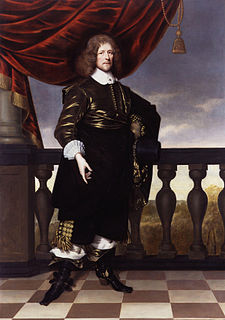 W
WSir Oliver St John, was an English judge and politician who sat in the House of Commons from 1640 to 1653. He supported the Parliamentary cause in the English Civil War.
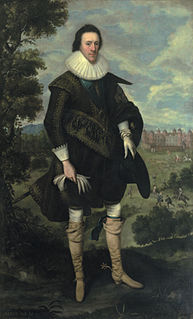 W
WWilliam Cecil, 2nd Earl of Salisbury,, known as Viscount Cranborne from 1605 to 1612, was an English peer, nobleman, and politician.
 W
WWilliam Fiennes, 1st Viscount Saye and Sele was an English nobleman and politician, known also for his involvement in several companies for setting up overseas colonies.
 W
WJohn Selden was an English jurist, a scholar of England's ancient laws and constitution and scholar of Jewish law. He was known as a polymath; John Milton hailed Selden in 1644 as "the chief of learned men reputed in this land."
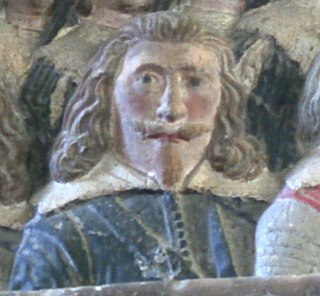 W
WWilliam Strode was an English politician who sat in the House of Commons variously between 1624 and 1645. He was one of the Five Members whose impeachment and attempted unconstitutional arrest by King Charles I in the House of Commons in 1642 sparked the Civil War, during which he fought on the Parliamentarian side.
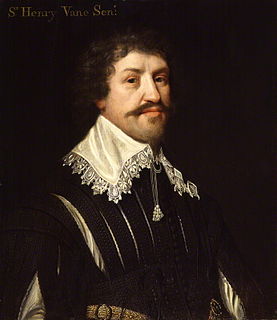 W
WSir Henry Vane, the elder was an English politician who sat in the House of Commons at various times between 1614 and 1654. He served King Charles in many posts including secretary of state, but on the outbreak of the English Civil War joined the Parliamentary cause. He was the third cousin of Francis Fane, 1st Earl of Westmorland.
 W
WSir Henry Vane was an English politician, statesman, and colonial governor. He was briefly present in North America, serving one term as the governor of the Massachusetts Bay Colony, and supported the creation of Roger Williams' Rhode Island Colony and Harvard College. A proponent of religious tolerance, as governor, he defended Anne Hutchinson and her right to teach religious topics in her home which put him in direct conflict with the Puritan leaders in the Massachusetts Colony. He returned to England after losing re-election and eventually, Mrs. Hutchinson was banned from the colony.
 W
WPhilip Wharton, 4th Baron Wharton was an English soldier, politician and diplomat. He was a Parliamentarian during the English Civil War.
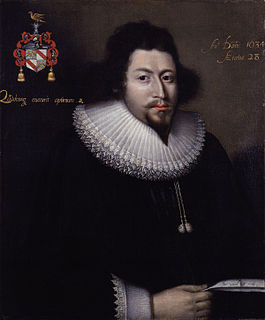 W
WSir Bulstrode Whitelocke was an English lawyer, writer, parliamentarian and Lord Keeper of the Great Seal of England.
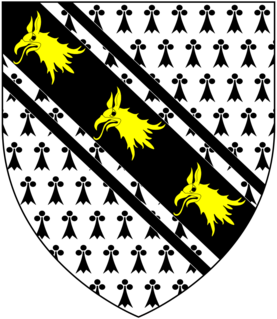 W
WWalter Yonge (1579–1649) of Great House in the parish of Colyton in Devon, England, was a lawyer, merchant and diarist.